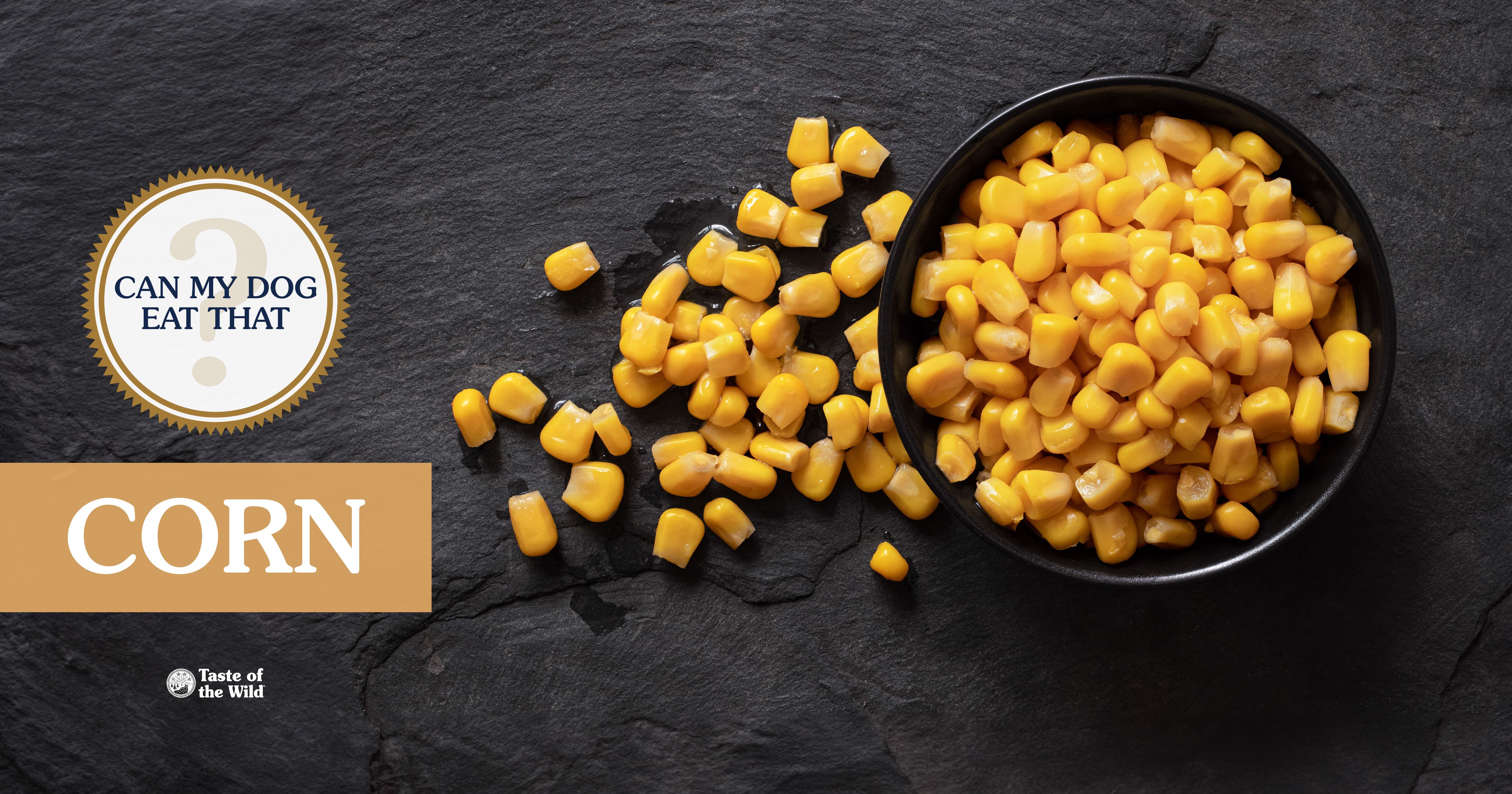Welcome to “Can My Dog Eat That?,” our series that answers some obvious (and not-so-obvious) questions about what your dog can and can’t safely eat. Today we answer the question “Can dogs eat corn?” Read on!
Like carrots, corn is a common ingredient in many dog foods because of its nutrient content (more on that later). So yes, dogs can eat corn, but only if it’s off the cob and doesn’t have any of the delicious toppings that people love to put on it.
Plain, Loose Corn Is the Way to Go
Corn removed from the cob that doesn’t have any condiments or toppings on it, is a healthy treat for most dogs (in moderation). Similarly, popcorn that’s air-popped and doesn’t have any toppings (e.g., butter, salt, cinnamon sugar) is a delicious treat — just make sure you remove any kernels that didn’t pop.
It’s the other things that may be in corn-based human foods that you need to be wary of. Yummy foods like corn tortillas, corn chips, canned corn, hush puppies, corn dogs and polenta (depending on how it’s made) can be high in sodium (salt). Excessive sodium can cause dehydration, so if your dog does eat a bunch of salty products, make sure they have plenty of fresh water available.
It’s best to avoid sugary corn-based products, too. Foods like corn muffins, cornbread and creamed corn are typically high in sugar, fat, salt or other ingredients that aren’t good for dogs. Remember that some sweet foods (like some tomato-based ketchup products) contain the artificial sweetener xylitol, which is toxic to dogs. So be on the lookout for that, too.
No Corn Cobs or Husks!
Corn on the cob is a sweet, tasty side dish that’s especially good roasted on the grill. But as you finish chomping on the cob, juice running down your chin, don’t be tempted to throw it to your dog. It may look like a good treat for them to chew on, but dogs can choke on the cob and it can cause an intestinal blockage if swallowed.
If you bought some fresh corn in the husk from a roadside stand or from a store, you’re probably not going to eat the husk — and neither should your dog. Husks are hard to digest and, just like the cob, can be a choking hazard or cause an intestinal blockage. Compost the cob and husks instead.
Corn Isn’t Just a Filler
Two of the myths circulating about corn and dogs are that corn in pet food is only there as a filler, and that many dogs are allergic to corn. These are indeed myths. Corn is used in dog food as a source of protein and carbohydrates in the form of digestible starch. Corn also provides essential amino acids and fatty acids, soluble and insoluble fiber, vitamins, minerals and antioxidants.
It is true that dogs can develop allergies to any meat or grain protein. However, corn isn’t on the list of top allergens in dogs. The allergens that are more likely to cause reactions in dogs are beef, dairy products and wheat, followed by lamb, eggs, chicken and soy. PetMD tells us that food allergies are less common than seasonal allergies or flea and tick allergies, and that only 0.2% of dogs have food allergies. So the risk of a true corn allergy is very low.
It’s also important to know that a food intolerance is different to a food allergy. A food allergy is an abnormal reaction to a normal food due to the dog’s immune system misjudging a safe substance as a disease-causing invader. A food intolerance, on the other hand, does not involve the immune system.
Corn is a healthy treat for most dogs. Just make sure it’s been removed from the cob and doesn’t have any extra toppings or flavorings on it.
If you’re curious about your dog’s ability to eat other snacks like nuts, bookmark our blog!

RELATED POST: Can My Dog Eat That? Popcorn
The information in this blog has been developed with our veterinarian and is designed to help educate pet parents. If you have questions or concerns about your pet's health or nutrition, please talk with your veterinarian.

